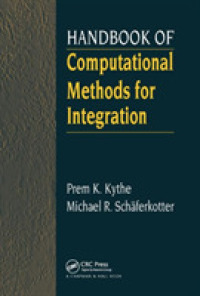- ホーム
- > 洋書
- > 英文書
- > History / World
Full Description
Greek tragedy parades, tests, stimulates, and upends human cognition. Characters plot deception, try to fathom elusive gods, and fail to recognise loved ones. Spectators observe the characters' cognitive limitations and contemplate their own, grapple with moral quandaries and emotional breakdown, overlay mythical past and topical present, and all the while imagine that a man with a mask is Helen of Troy. With broad coverage of both plays and cognitive capabilities, Minds on Stage pursues a dual aim: to expand our understanding of Greek tragedy and to use Greek tragedy as a focal point for exploring cognitive thinking about literature.
After an introduction that considers questions of methodology, the volume is divided into three parts. Part One examines the dynamics of mind-reading by characters and audience, with articles on Aeschylus, Sophocles, and Euripides. The chapters in Part Two study aspects of the characters' cognitive sense-making, from individual styles of attributing causes and different manners of remembering, to the use of objects as tools for thinking. Finally, Part Three turns to the cognitive dimension of spectating. The articles treat the spectators' generic expectations and different modes of engagement with the fictional worlds of the plays, the joint nature of their attention to the drama, the nexus between aesthetic illusion and the ethics of deception, as well as the situated nature of cognition that helps both audiences and characters make sense of morally complex situations.
Contents
1: Felix Budelmann: Introduction
Part I Reading Minds
2: Evert van Emde Boas: Mindreading, character, and realism: the case of Medea
3: Sheila Murnaghan: Reading the mind of Ajax
4: Michael Carroll: Space for deliberation: image schemas, metaphorical reasoning, and the dilemma of Pelasgus
Part II Cognitive Work by Characters
5: Ruth Scodel: Attribution and Antigone
6: Lucy van Essen Fishman: 'Remember to what sort of man you give this favour': Looking back on Sophocles' Ajax
7: Anne-Sophie Noel: Thinking through things: extended cognition as a consolatory fiction in Greek tragedy
Part III Performance, Spectating, and Cognition
8: Hanna Golab: Spectating ancient dramas: the Athenian audience and its emotional response
9: Jonas Grethlein: Gorgias' apatê, Sophocles' Electra, and cognitive criticism
10: A. C. Duncan: Seeing together: joint attention in Attic tragedy
11: Seth L. Schein: Generic expectations and the interpretation of Attic tragedy some preliminary questions and considerations
12: Bob Corthals and Ineke Sluiter: Situated cognition. Sophocles, Milgram, and the disobedient hero








